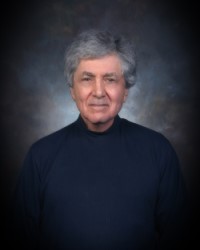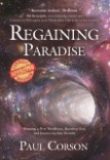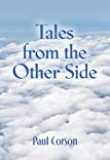Author Interview: Paul Corson

The books shown on the left are by Paul Corson. Click on the cover to order.
This interview was conducted by Timea Barabas on
August 28, 2020.
Timea Barabas: Opening up about personal experiences to the extent you do in Regaining Paradise: Forming a New Worldview, Knowing
God, and Journeying into Eternity takes a lot of courage. Was this difficult for you? What made you decide to follow through with sharing your soul-searching process?
Paul Corson: It was not difficult for me in the least. I felt that the knowledge that I had received was extraordinary, and as such, it needed to be shared.
Timea Barabas: What would you recommend to people with similar transcendental experiences?
Paul Corson: Speak to folks that you trust about your experiences.
Timea Barabas: Who is the thinker that had the greatest influence over your evolution?
Paul Corson: The Grecian philosophers Plato and Socrates.
Timea Barabas: How was the process of writing Regaining Paradise? Tell us about a writing routine (if there was one) and the (emotional, intellectual, spiritual) journey behind writing the book?
Paul Corson: I wrote at least five hours a day. Interestingly, by writing about the subject that I cover in the book, this activity feeds on itself. I see the subject from a yet broader perspective.
Timea Barabas: Which was the most difficult part of writing the book?
Paul Corson: As I look back, I do not recall any difficult times, such as writer’s block.
Timea Barabas: Although the book draws heavily on personal experience, it is rich with scientific references. Do you consider it necessary for readers to have a kind of prerequisite knowledge about certain topics to understand the message of the book? And if so, what readings would you recommend?
Paul Corson: I believe that most of the science in the book is covered in high school. In the case with such subjects as string theory, I provide the reader with background information that I hope will explain the message I am presenting.
Timea Barabas: Do you think that this journey would be more challenging for an agnostic or an atheist? Why is that?
Paul Corson: It’s difficult to say. Agnostics may be willing to hear information about the creating force, while the theist may not be open. Ultimately, the extent to which you embark on this journey depends on trust: the extent to which you trust what I have experienced and learned. The mind, in many cases, staunchly defends the stay quo. The mind, or the person becomes defensive when the Judeo-Christian constructs are challenged. These constructs are considered sacrosanct.
Timea Barabas: What role do you believe doubt plays in forming one’s worldview? Do you believe that doubt is incompatible with faith?
Paul Corson: Doubt, to some degree is healthy and is expected. But doubt would need to give way to the acceptance of a new way of looking at themselves and the world, which would ultimately be based on reason. That would be ideal, but humans do not “let go” easily. One can have some degree of doubt, that is if you have overriding faith.
Timea Barabas: The argumentation throughout the book draws heavily from personal experience, intuition, and science. Are science and religion incompatible by definition, or can they become congruent?
Paul Corson: Sir Isaac Newton and Galilei were both theists as are many scientists of today. Science and religion can be congruent when a middle ground is achieved that is based on undeniable truths. That’s easier said than done. My skepticism is based on bringing people with different political views together. These views have savaged families and friends. In regard to romance, these views can be a “deal breaker.” People are more polarized than ever before in memory.
Timea Barabas: Do you believe that Regaining Paradise bares a special significance for our time?
Paul Corson: I do because the world, especially the United States is being fragmented by fear and racism. The message of the book is that we are all miracles. That knowledge will encourage us to set higher standards for ourselves, standards that are not ego-based. Not driven to feed the “I” the “me”, we will treat everyone as brothers and sisters.
Timea Barabas: Is this book relevant to our current time? How so?
Paul Corson: I believe that the book is relevant because it urges us to follow the voice of our “inner angels,” the voice that has been largely forgotten. Regaining Paradise describes how we can regain the idealism we have when we were young and, still trailing those clouds of glory. I believe that I have journeyed back to that early time in my life, and I dare say that I’m a better, more fulfilled , and more loving person because for it.
Timea Barabas: Thank you for taking the time to do this interview for Bestsellersworld.com.
Ⓒ 2022 BestSellersWorld.com | All Rights Reserved | Design + Development by The Unglitch


